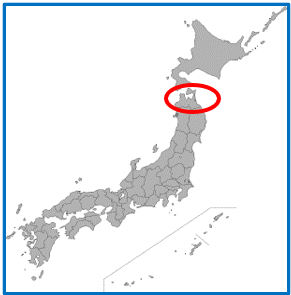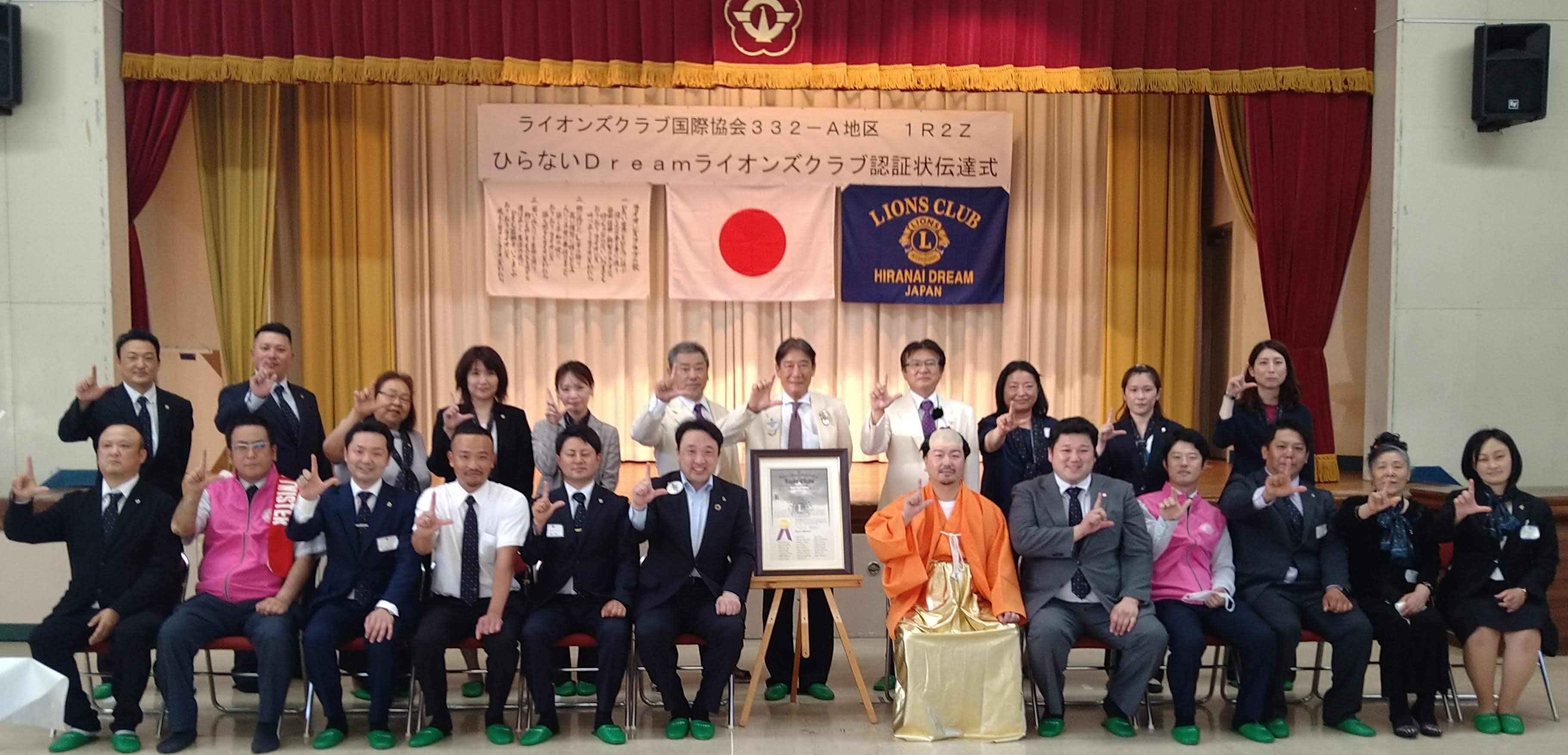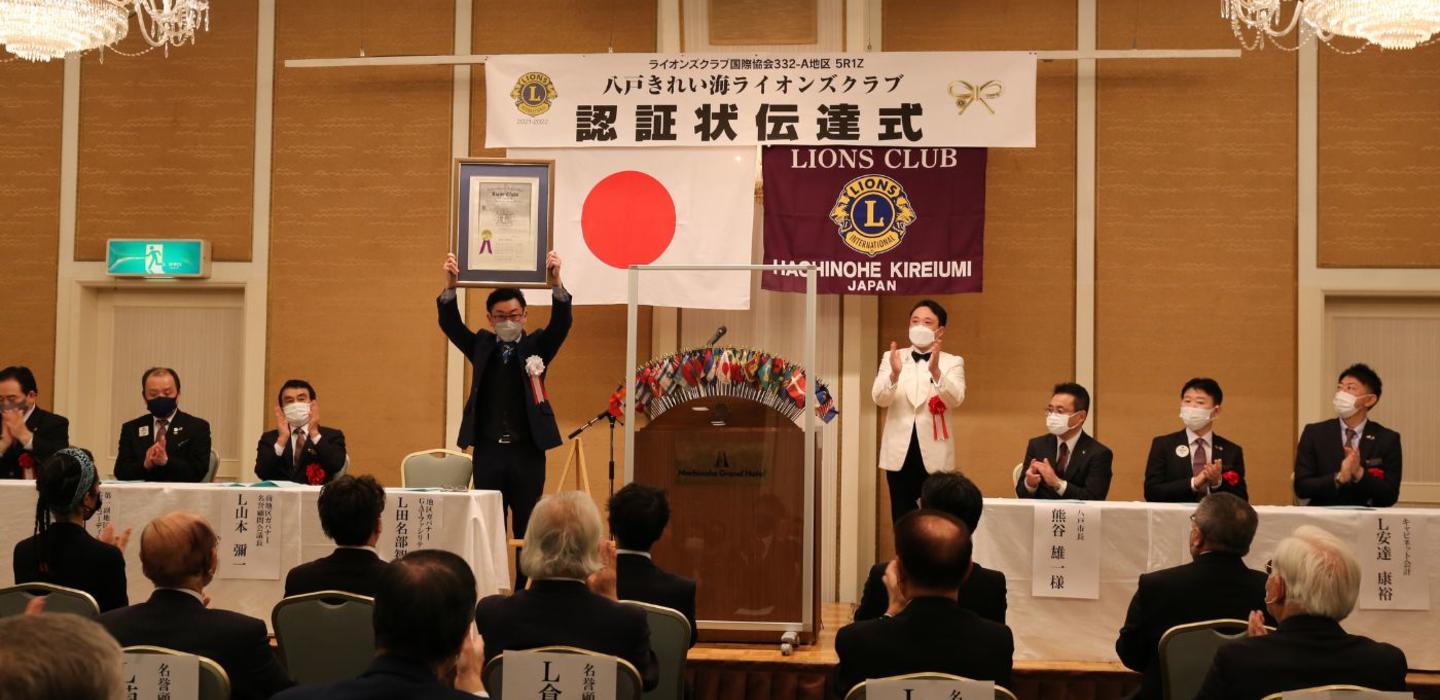It is an unfortunate truth that tragedy can bring people together. The aftermath of such an event in northeastern Japan brought a group of environmentalists together to provide necessary relief to their community. Their common devotion to local habitats drove them to act. These shared passions also led this group to form their own specialty Lions club focused on ecological conservation.

On August 11, 2021, the cargo ship, the Crimson Polaris, ran aground off the coast of Hachinohe Port. The crash split the hull of the ship in two. Debris and oil gushed into the sea, wreaking havoc on the surrounding natural environment. Following the shipwreck, throngs of passionate independent volunteers gathered to assist in the cleanup. Witnessing the spirit of these volunteers, then district governor for 332-A Tomoyuki Tanabu was inspired to rethink how to develop membership in Japan.

In the aftermath of the crash of the Crimson Polaris, DG Tanabu realized the dedicated individuals committed to protecting the natural habitat off Hachinohe Port precisely represented the work of Lions around the world—serving those in need. Tanabu started his service journey himself in 2002 and is now the council chair for Multiple District 332.
As a leader with decades of experience seeing the impact that Lions can make, he envisioned these volunteers continuing their service as Lions. He needed a plan, however, to show these potential members all that they would gain by forming a Lions club and joining the largest humanitarian organization in the world.

Growing membership in Japan has been somewhat of a challenge over the past several years due to its declining population. This has been caused by a decreasing birthrate and an aging population. For District 332-A, this challenge was also heightened as the district is located in Aomori Prefecture, one of the fastest aging, most thinly populated and lowest income areas in Japan. However, Council Chair Tanabu refused to let this be an excuse. Instead, he focused on taking advantage of the Global Membership Approach (GMA) to address these challenges and reach the district’s membership targets.
The GMA pilot districts in Japan have shown promising results. In 2021-2022, four out of the five districts that saw a net increase in membership were GMA pilot districts. The Global Action Team’s focus on highlighting achievements and success stories have also encouraged recruitment. Utilizing these new techniques were the key ingredient to District 332-A’s membership turnaround. According to Council Chair Tanabu, “If you think it is difficult, you probably haven’t found new needs for service. Various needs are there around you. If you prepare a club to meet the needs, it will automatically lead to membership growth and new clubs.”
These shared passions also led this group to form their own specialty Lions club focused on ecological conservation.
District 332-A used the four steps of the GMA as a framework to recruit the ocean volunteers in Hachinohe. As the potential new members all shared the common interest of ocean cleanup and environmentalism, there was a clear opportunity. The district put together a plan to form a specialty club. Specialty clubs are designed for members who share a common interest or passion and then turn those passions into rewarding service projects. Then they put the plan into action. District Lions approached the volunteers and shared with them the advantages of incorporating their environmental volunteerism into a new specialty club with Lions International. By starting a specialty club, these volunteers would be able to transform and expand their volunteer footprint.
The district emphasized to these volunteers the benefits that starting a club with Lions International would bring – developing leadership skills, grant opportunities, insurance for events and a national and international network of likeminded individuals. However, one obstacle needed to be overcome to convince these part-time volunteers to dedicate their time to a new club—the high membership dues in Japan.
In Japan, districts and multiple districts have fee structures unique to their region. Because of this, the ocean volunteers were skeptical that the benefits would be worth the cost of joining a Lions club. These volunteers were interested in contributing to their communities but had been volunteering without any cost. Why start paying now?
Council Chair Tanabu realized that it was necessary to explain to potential new members the value of their membership contributions first. Lions International has developed into the world’s largest service organization with more than 100 years of experience because it is a service organization with volunteers putting service over everything else. Therefore, service volunteers are able to serve their countries, societies and people through continuity and increased influence.
Still, Council Chair Tanabu did not want high dues to discourage membership growth. As a result, he revised the district’s approach: reform district membership fees and rules and ensure that processes develop quickly. He also wanted to utilize specialty clubs to target groups with shared interests, much like the ocean volunteers in Hachinohe. As a result, Council Chair Tanabu was able to revise the bylaw for district membership fees to reduce the financial burden and encourage formation and development of specialty clubs.
With these changes, recruitment in Hachinohe began in September 2021, and as expected, moved quickly. By December 2021, they held the newly chartered Hachinohe Kireiumi Lions Clubs inauguration ceremony doubling as the club’s first official meeting. They chartered the club with 20 members, and since 2021, it has grown to 32 members with regular monthly meetings. As a specialty club of environmentalists, they have also planned an activity focused on conservation activities off the coast of Hachinohe City to continue clean up after the oil spill from the Crimson Polaris crash.
With this new approach, it became easier for the district to continue to charter clubs. Other interested groups were approached about specialty clubs, and branch and campus clubs were also formed. Throughout the 2021-2022 Lion Year, Council Chair Tanabu and his team chartered seven clubs: Hachinohe Golf Lions Club, Hiranai Dream Lions Club, Hachinohe Institute of Technology Ban Labo Campus Lions Club, Hachinohe Kireiumi Lions Clubs, Hirosaki SDGs Lions Club, Aomori Blue Lions Club and Gonohe Festival Lions Clubs.
This momentum continued into 2022-2023 with two new clubs already formed: Hirosaki Alert Lions Club and Aomori Ocean Lions Club. Tomoyuki Tanabu is immensely proud of what District 332-A has achieved and hopes their success can motivate Lions around the world. He says, “I assure you that you can further develop friendships with new people if you act out of the box! Let’s enjoy it and work together!”

Learn more about the Specialty Clubs Program at Lions International.
Kelsey Ax is a Global Action Team field specialist at Lions International.
The coronavirus (COVID-19) pandemic has impacted communities around the world in different ways. To ensure we’re serving safely wherever we live, Lions should follow the guidelines of the Centers for Disease Control, World Health Organization or local health authorities. Visit our Serving Safely page for resources that can help you safely serve your community.

